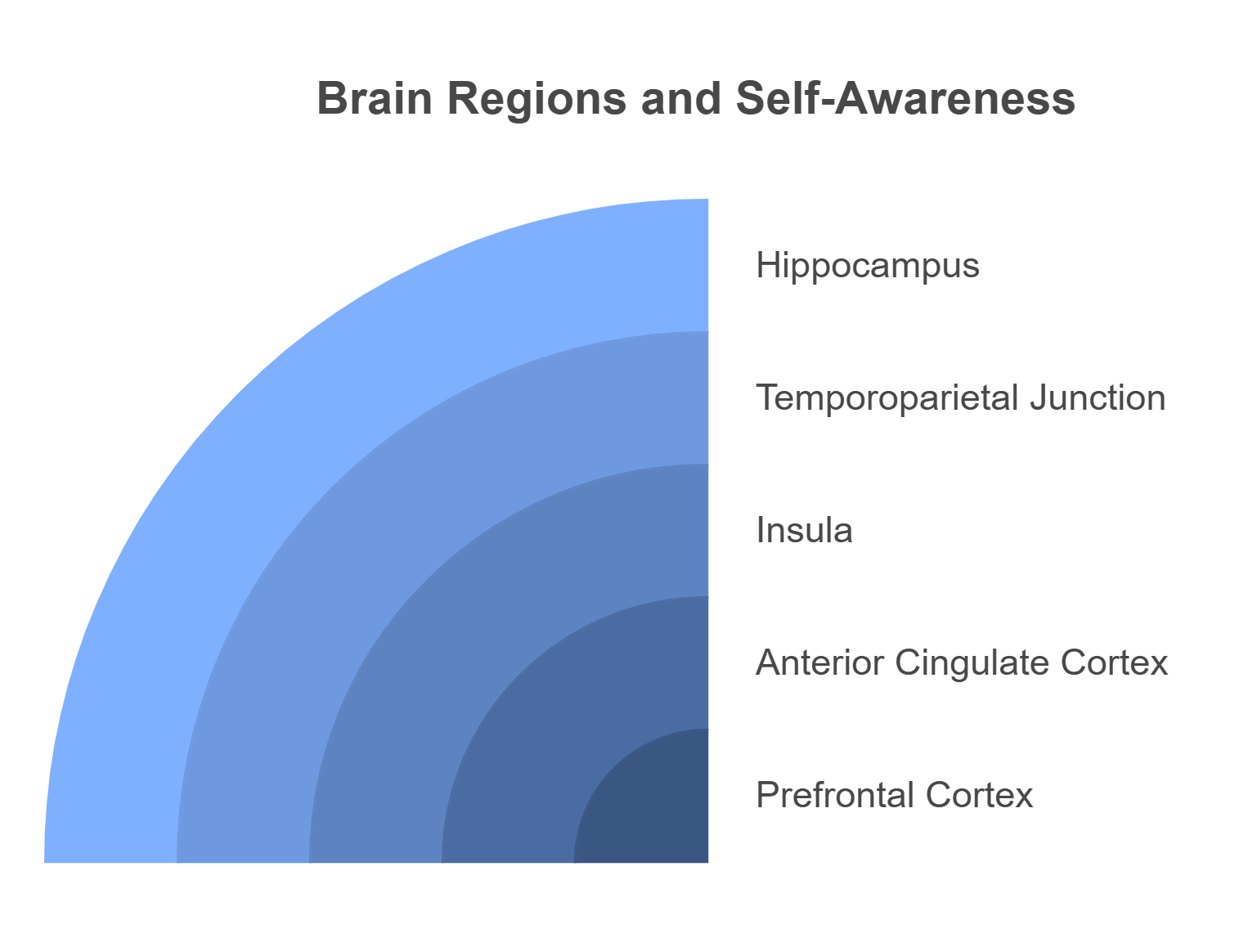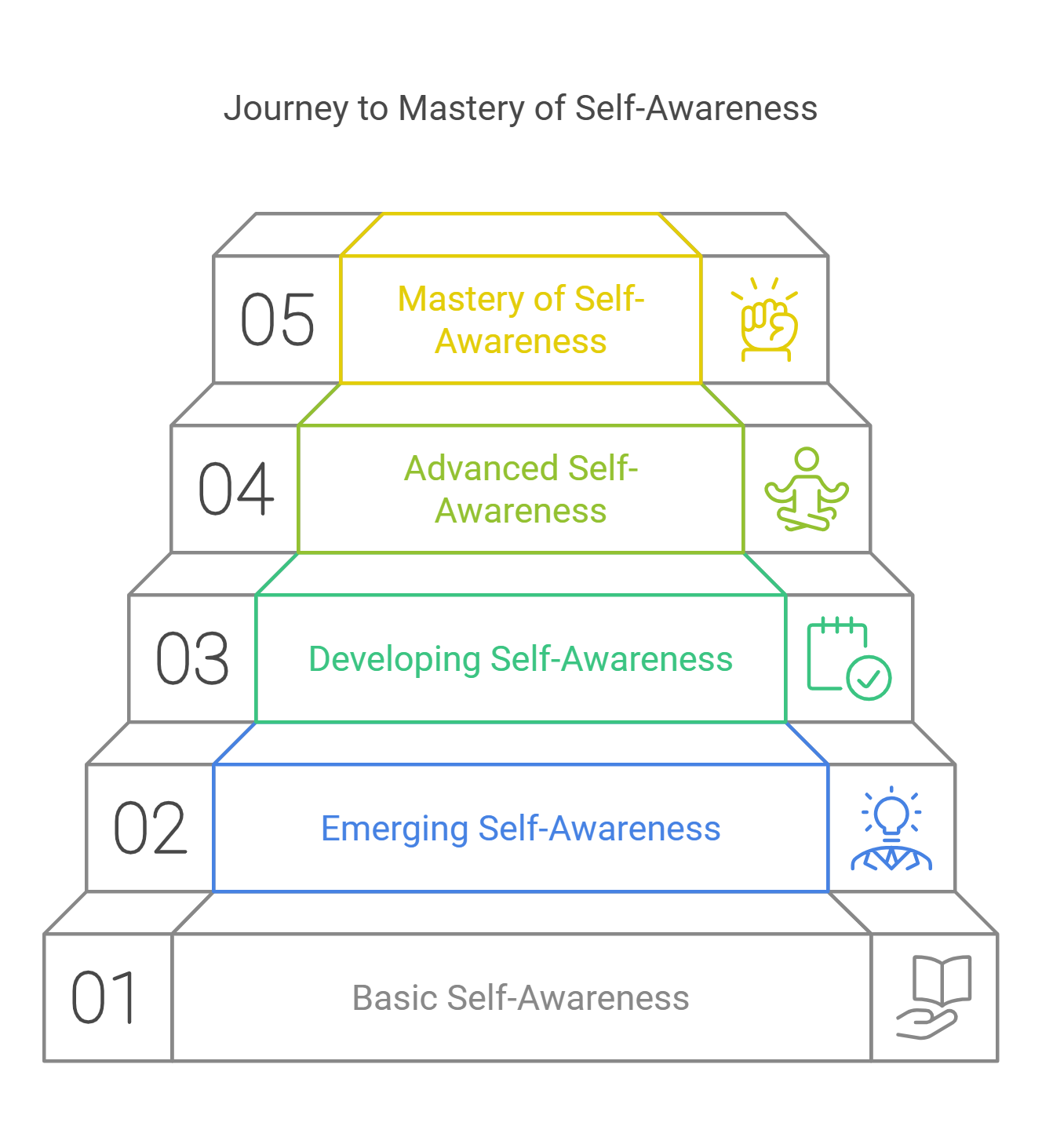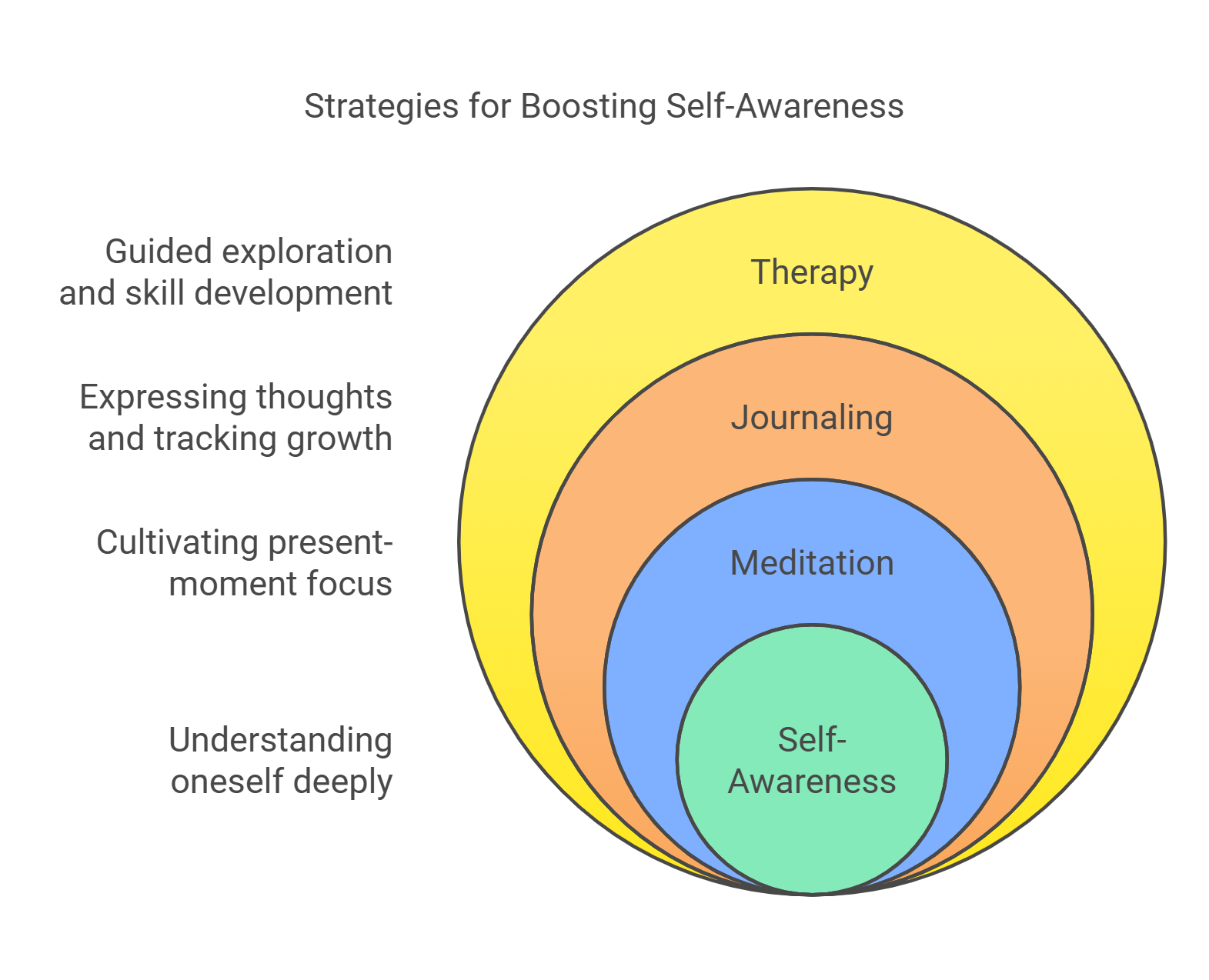How To Boost Your Self-Awareness In 2025

Why do you react the way you do when things get tough? Self-awareness holds the answer. You can notice your thoughts, emotions, and habits, without getting swept up in them.
Self-awareness helps you catch yourself before repeating old patterns. It sharpens your decisions, improves how you show up in relationships, and brings more peace to your daily life.
In this guide, Vishnu Ra breaks down how self-awareness works, why it matters, and what you can do to strengthen it, step by step.
How Does Self-Awareness Develop?
Self-awareness is a skill you learn over time. It begins in early childhood as you notice yourself as separate from others. It keeps developing through your experiences, personal reflection, and feedback from the people around you.
The Role of Reflection
Reflecting means thinking about your thoughts, feelings, and actions. By taking time to think about your experiences, you learn more about yourself. This helps you understand what triggers certain feelings or behaviors and what you need to work on.
Social Interactions and Feedback
Talking with others and getting their feedback helps you see things you might not notice about yourself. Constructive criticism from friends, family, or mentors can help you understand yourself better and grow.
Life Experiences
Life experiences, both good and bad, teach you about yourself. Dealing with challenges, successes, and failures helps you become more adaptable and resilient, and adds to your understanding of who you are.

Understanding Self-Awareness Through the Mirror Test
The mirror test, developed by psychologist Gordon Gallup Jr. in 1970, assesses whether an animal can recognize its reflection as an image of itself. This test involves placing a visible mark on an animal in a location it cannot see without a mirror.
If the animal uses the mirror to investigate and attempt to remove the mark, it suggests self-recognition.
Key Points:
While the mirror test provides insights into self-awareness, its applicability varies across species.
Animals that rely less on visual cues may not respond to mirrors in ways that indicate self-recognition, highlighting the need for diverse methods to assess self-awareness across different species.
Self-Awareness and the Brain
Self-awareness comes from different parts of the brain working together.
The Prefrontal Cortex
The prefrontal cortex is crucial for thinking about yourself, making decisions, and planning. It helps you reflect on your thoughts and actions.
The Anterior Cingulate Cortex
This part of the brain helps regulate emotions and notice mistakes. Pay attention to your actions and stay aware of your behavior in the moment.
The Temporoparietal Junction
This part of the brain helps you understand other people’s thoughts and feelings. Learn to separate your thoughts from other people’s. This helps you comprehend them without losing yourself.
Brain Connections
These brain areas work together to support self-awareness. Better connections between these areas are linked to higher self-awareness and emotional skills.

Levels of Self-Awareness
There are different levels of self-awareness, each one getting more detailed.
Basic Self-Awareness
This is simply being aware that you exist. It includes noticing things like hunger, tiredness, or pain.
Reflective Self-Awareness
Reflective self-awareness means thinking about your thoughts and feelings. You ask yourself why you feel or act a certain way.
Metacognitive Self-Awareness
Metacognition means thinking about how you believe. It’s a more advanced level of self-awareness that helps you make better decisions and solve problems.
Emotional Self-Awareness
This means understanding your emotions and how they affect your behavior and interactions with others.
Types of Self-Awareness
Self-awareness comes in different forms, affecting how you witness yourself and how others see you.
Public Self-Awareness
Public self-awareness is about how you think others see you. It’s being aware of how you appear to others and wanting to make a good impression.
Public Self-Awareness Examples
Private Self-Awareness
Private self-awareness is about understanding your thoughts, emotions, and motivations. It’s more about introspection than what others think.
Private Self-Awareness Examples
Subscribe to Create Higher Vibrations!
Get Inspiration and Practical advice straight to your inbox.
Why Is Self-Awareness Important?
Self-awareness is key to success in life. It helps you understand your emotions, communicate better, and build good relationships.
Being aware of your feelings can help you respond calmly in stressful situations, improving how you handle conflicts at work or home. Knowing yourself well allows you to make better choices and relate to others.
Enhancing Emotional Intelligence
Emotional intelligence, or EQ, is about understanding emotions, both yours and others. High EQ helps you handle relationships wisely and with empathy, and self-awareness is the foundation of EQ. Self-awareness aids you in recognizing your emotions, which is the first step to managing them effectively.
Improving Relationships
Self-aware people communicate clearly and know their boundaries. This helps them build honest and healthy relationships with others.
Facilitating Personal Growth
Self-awareness helps you see areas you need to improve. For instance, you might notice a tendency to avoid conflict, which can help you work on assertiveness. It allows you to set goals, face challenges, and grow as a person.
Better Decision-Making
Knowing your values, strengths, and weaknesses helps you make more precise, more confident choices. You’re less likely to make choices on impulse and more likely to think about long-term consequences.
How to Improve Your Self-Awareness
Improving self-awareness takes time and effort. Here are some ways to work on it:
Meditation
Meditation is a great way to increase self-awareness. It helps you focus and notice your thoughts and feelings without judging them.
Benefits of Meditation
How to Practice Meditation
Journaling
Journaling means writing down your thoughts, feelings, and experiences. It helps you understand yourself better and track your growth.
Benefits of Journaling
How to Start Journaling
Talk Therapy
Talk therapy, or seeing a therapist, helps you explore personal issues and become more self-aware. For example, therapy can help you understand why certain situations trigger specific emotions, making it easier to manage your reactions. A skilled therapist can help you see yourself more clearly and uncover patterns you might miss.
Benefits of Talk Therapy
Types of Talk Therapy
Develop Your Emotional Intelligence
Emotional intelligence means understanding and managing emotions well. It’s closely linked to self-awareness.
Strategies to Develop Emotional Intelligence
Practical Tips
When Self-Awareness Becomes Overwhelming
Self-awareness is a valuable tool for personal growth, but when it becomes excessive, it can cross into self-consciousness. This shift often manifests as an intense preoccupation with how others perceive you.
Have you ever walked into a room and felt like all eyes were on you, dissecting your every move? This hyper-awareness can make even ordinary interactions feel fraught with tension, leaving you second-guessing yourself at every turn.
In many situations, these feelings are fleeting and tied to specific circumstances, like public speaking or being introduced to new people. However, for some, this heightened self-focus becomes a constant companion, often linked to conditions like social anxiety.
Over time, excessive self-consciousness can lead to avoidance behaviors and increased stress, making daily life feel like a series of social hurdles to overcome.
If these feelings resonate, consider reaching out to a therapist or mental health professional. They can help you uncover the roots of your self-consciousness and provide strategies to manage it, such as cognitive-behavioral techniques, mindfulness practices, or gradual exposure to anxiety-provoking situations.
Taking this step can transform overwhelming self-awareness into a balanced sense of self that supports rather than hinders your well-being.
Final Thoughts
Boosting self-awareness is a journey that helps you grow, improves relationships, and makes life better. You can understand yourself better by meditating, journaling, speaking with a therapist, and building emotional awareness. This makes you more fulfilled and helps you handle challenges with confidence.
Start working on your self-awareness today. The benefits will not only make your life better but also positively affect those around you. Take the first step towards understanding yourself and see what you can achieve.



